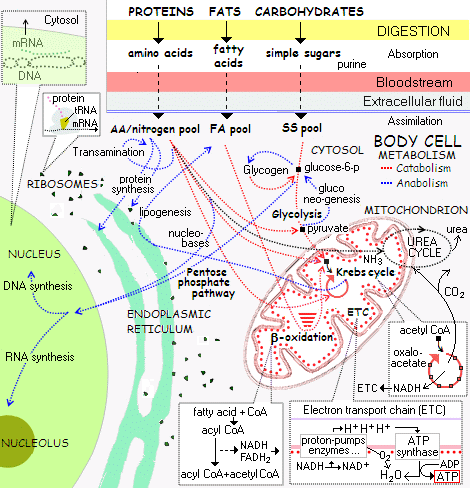L&FP, 55: Defining/Clarifying Intelligent Design as Inference, as Theory, as a Movement
It seems, despite UD’s resources tab, some still struggle to understand ID in the three distinct senses: inference, theory/research programme, movement. Accordingly, let us headline a clarifying note from the current thread on people who doubt, for the record:
[KF, 269:] >>. . . first we must mark out a matter of inductive reasoning and epistemology. Observed tested, reliable signs such as FSCO/I [= functionally specific, complex organisation and/or associated information, “fun-skee”] beyond 500 – 1,000 bits point to design as cause for cases we have not observed. This is the design INFERENCE.
 A classic example of FSCO/I, the organisation of a fishing reel
A classic example of FSCO/I, the organisation of a fishing reel
 A von Neumann, kinematic Self Replicator, illustrating how an entity with
A von Neumann, kinematic Self Replicator, illustrating how an entity with self-replication reflects considerable additional FSCO/I, where
the living cell embeds such a vNSR
 The metabolic network of a cell exhibits FSCO/I in a process-flow, molecular nanotech self replicating system
The metabolic network of a cell exhibits FSCO/I in a process-flow, molecular nanotech self replicating system
 Petroleum refinery block diagram illustrating FSCO/I in a process-flow system
Petroleum refinery block diagram illustrating FSCO/I in a process-flow system
 The design inference reduced to a flowchart, the per aspect explanatory filter
The design inference reduced to a flowchart, the per aspect explanatory filterNote, inference, not movement, not theory.
Following the UD Weak Argument Correctives under the Resources tab, we can identify ID Theory as a [small] research programme that explores whether there are such observable, testable, reliable signs, whether they appear in the world of life and in the cosmos, whether we may responsibly — notice, how duties of reason pop up naturally — use them to infer that cell based life, body plans, the cosmos etc are credibly the result of intelligently directed configuration . . . and that’s a definition of design. This, in a context where the proposed “scientific” alternative, blind chance and/or mechanical necessity has not been observed to actually produce things exhibiting FSCO/I etc.
Logically, this is an application of inductive reasoning, modern sense, abduction.
Which is common in science and is commonly held to ground scientific, weak philosophical sense, knowledge. Weak, it is open ended and can be defeated by further analysis and evidence, warranted, credibly true [and so reliable] belief.
Going beyond, where we have further information, evidence and argument we may explore whodunit, howtweredun, etc.
Such is after all commonplace in technical forensics, medical research, archaeology, engineering [esp. reverse engineering], code cracking etc. I guess, these can be taken as design-oriented sciences. Going back to 4th form I remember doing natural science explorations of springs. Manufactured entities. So are lenses, mirrors, glass blocks, radio systems, lasers etc.
Beyond the theory, there is a movement, comprising supporters and friendly critics as well as practitioners consciously researching design theory or extending thinking on it and applying same to society or civilisation, including history of ideas.
The first major design inference on record in our civilisation is by Plato, in The Laws, Bk X:
Ath [in The Laws, Bk X 2,360 ya]. . . .[The avant garde philosophers and poets, c. 360 BC] say that fire and water, and earth and air [i.e the classical “material” elements of the cosmos — the natural order], all exist by nature and chance, and none of them by art . . . [such that] all that is in the heaven, as well as animals and all plants, and all the seasons come from these elements, not by the action of mind, as they say, or of any God, or from art, but as I was saying, by nature and chance only [ –> that is, evolutionary materialism is ancient and would trace all things to blind chance and mechanical necessity, contrasted to “the action of mind” i.e. intelligently directed configuration] . . . .
[[T]hese people would say that the Gods exist not by nature, but by art, and by the laws of states, which are different in different places, according to the agreement of those who make them . . . .
Then, by Heaven, we have discovered the source of this vain opinion of all those physical investigators . . . . they affirm that which is the first cause of the generation and destruction of all things, to be not first, but last, and that which is last to be first, and hence they have fallen into error about the true nature of the Gods.
Cle. Still I do not understand you.
Ath. Nearly all of them, my friends, seem to be ignorant of the nature and power of the soul [[ = psuche], especially in what relates to her origin: they do not know that she is among the first of things, and before all bodies, and is the chief author of their changes and transpositions. And if this is true, and if the soul is older than the body, must not the things which are of the soul’s kindred be of necessity prior to those which appertain to the body?
Cle. Certainly.
Ath. Then thought and attention and mind and art and law will be prior to that which is hard and soft and heavy and light; and the great and primitive works and actions will be works of art; they will be the first, and after them will come nature and works of nature, which however is a wrong term for men to apply to them; these will follow, and will be under the government of art and mind.
Cle. But why is the word “nature” wrong?
Ath. Because those who use the term mean to say that nature is the first creative power; but if the soul turn out to be the primeval element, and not fire or air, then in the truest sense and beyond other things the soul may be said to exist by nature; and this would be true if you proved that the soul is older than the body, but not otherwise.
[[ . . . .]
Ath. . . . when one thing changes another, and that another, of such will there be any primary changing element? How can a thing which is moved by another ever be the beginning of change? Impossible. But when the self-moved changes other, and that again other, and thus thousands upon tens of thousands of bodies are set in motion, must not the beginning of all this motion be the change of the self-moving principle? . . . . self-motion being the origin of all motions, and the first which arises among things at rest as well as among things in motion, is the eldest and mightiest principle of change, and that which is changed by another and yet moves other is second. [–> notice, the self-moved, initiating, reflexively acting causal agent, which defines freedom as essential to our nature, and this is root of discussion on agents as first causes.]
[[ . . . .]
Ath. If we were to see this power existing in any earthy, watery, or fiery substance, simple or compound-how should we describe it?
Cle. You mean to ask whether we should call such a self-moving power life?
Ath. I do.
Cle. Certainly we should.
Ath. And when we see soul in anything, must we not do the same-must we not admit that this is life?
[[ . . . . ]
Cle. You mean to say that the essence which is defined as the self-moved is the same with that which has the name soul?
Ath. Yes; and if this is true, do we still maintain that there is anything wanting in the proof that the soul is the first origin and moving power of all that is, or has become, or will be, and their contraries, when she has been clearly shown to be the source of change and motion in all things?
Cle. Certainly not; the soul as being the source of motion, has been most satisfactorily shown to be the oldest of all things.
Ath. And is not that motion which is produced in another, by reason of another, but never has any self-moving power at all, being in truth the change of an inanimate body, to be reckoned second, or by any lower number which you may prefer?
Cle. Exactly.
Ath. Then we are right, and speak the most perfect and absolute truth, when we say that the soul is prior to the body, and that the body is second and comes afterwards, and is born to obey the soul, which is the ruler?
[[ . . . . ]
Ath. If, my friend, we say that the whole path and movement of heaven, and of all that is therein, is by nature akin to the movement and revolution and calculation of mind, and proceeds by kindred laws, then, as is plain, we must say that the best soul takes care of the world and guides it along the good path. [[Plato here explicitly sets up an inference to design (by a good soul) from the intelligible order of the cosmos.
Earlier in the same Bk X, he had noted just how old and how philosophically loaded evolutionary materialism and its appeal to chance and/or necessity are, drawing out consequences for law, government and community:
Ath[enian Stranger, in The Laws, Bk X 2,360 ya]. . . .[The avant garde philosophers and poets, c. 360 BC] say that fire and water, and earth and air [i.e the classical “material” elements of the cosmos — the natural order], all exist by nature and chance, and none of them by art . . . [such that] all that is in the heaven, as well as animals and all plants, and all the seasons come from these elements, not by the action of mind, as they say, or of any God, or from art, but as I was saying, by nature and chance only [ –> that is, evolutionary materialism is ancient and would trace all things to blind chance and mechanical necessity; observe, too, the trichotomy: “nature” (here, mechanical, blind necessity), “chance” (similar to a tossed fair die), ART (the action of a mind, i.e. intelligently directed configuration)] . . . .
[Thus, they hold] that the principles of justice have no existence at all in nature, but that mankind are always disputing about them and altering them; and that the alterations which are made by art and by law have no basis in nature, but are of authority for the moment and at the time at which they are made . . .
We see the wider setting and the more specific themes.>>
Food for thought and for clarification. END
Copyright © 2022 Uncommon Descent . This Feed is for personal non-commercial use only. If you are not reading this material in your news aggregator, the site you are looking at is guilty of copyright infringement UNLESS EXPLICIT PERMISSION OTHERWISE HAS BEEN GIVEN. Please contact legal@uncommondescent.com so we can take legal action immediately.Plugin by Taragana
Michael J. Behe's Blog
- Michael J. Behe's profile
- 219 followers



